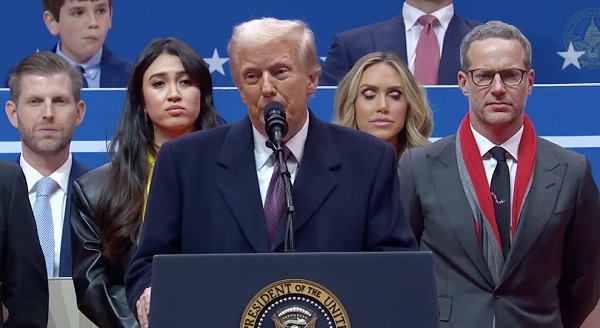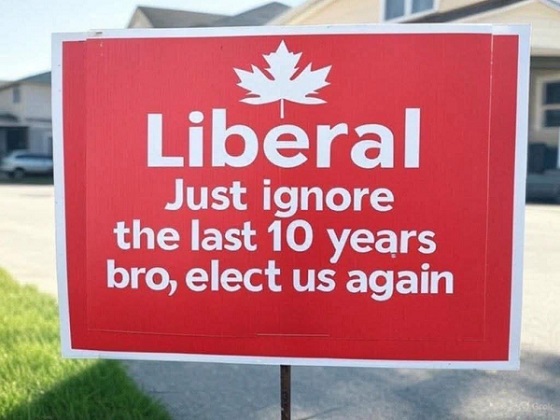From The Center Square
President Donald Trump’s 25% tariffs on imported goods from Mexico and Canada took effect Tuesday, putting the U.S. on a collision course with its top trading partners as consumers worry about higher prices on a wide range of products.
Canada responded with plans to put 25% tariffs on nearly $100 billion of U.S. imports. Mexico said it would retaliate with moves to be announced Sunday.
The U.S. also put an additional 10% tariff on Chinese imports, adding to a duty imposed a month ago. China announced retaliatory tariffs on U.S. agricultural goods, and other measures against U.S. companies. China also filed a lawsuit with the World Trade Organization.
After posting losses Monday that nearly wiped out all the gains since Trump won the November 2024 election, stocks sunk further Tuesday morning as investors digested the latest trade news. The S&P fell 0.7% Tuesday morning. The Nasdaq dropped 0.6%. The Dow Jones shed 423 points, down about 1%.
Mexico President Claudia Sheinbaum said her country would respond with tariff and non-tariff measures on Sunday. She plans to announce the U.S. products Mexico will target during a public event in Mexico City.
“There is no motive or reason, nor justification that supports this decision that will affect our people and our nations,” Sheinbaum said. “Nobody wins with this decision.”
Canada’s Prime Minister Justin Trudeau also said the tariffs were unjustified.
“Let me be unequivocally clear – there is no justification for these actions,” he said.
Trump has said the tariffs will remain in place until Mexico and Canada tighten border security to stop the follow of people and drugs, particularly fentanyl, across the border. Drug trafficking and migration have remained intractable problems that all three countries have worked to address with little success in the past. At the same time, Trump has said tariffs will make the U.S. “rich as hell” and shift the tax burden from Americans to foreign countries.
Tariffs are taxes on imported goods paid by importers and often passed on to consumers when possible.
Trudeau noted that Canada has taken action to address those border issues.
“While less than 1 percent of the fentanyl intercepted at the U.S. border comes from Canada, we have worked relentlessly to address this scourge that affects Canadians and Americans alike,” the prime minister said in a statement. “We implemented a $1.3 billion border plan with new choppers, boots on the ground, more co-ordination, and increased resources to stop the flow of fentanyl. We appointed a Fentanyl Czar, listed transnational criminal cartels as terrorist organizations, launched the Joint Operational Intelligence Cell, and are establishing a Canada-U.S. Joint Strike Force on organized crime.”
He added: “Because of this work – in partnership with the United States – fentanyl seizures from Canada have dropped 97% between December 2024 and January 2025 to a near-zero low of 0.03 pounds seized by U.S. Customs and Border Protection.”
Trudeau said Canada will respond with 25% tariffs against $155 billion of American goods. Canada will start with tariffs on $30 billion worth of goods immediately, and tariffs on the remaining $125 billion on American products in 21 days.
“Our tariffs will remain in place until the U.S. trade action is withdrawn, and should U.S. tariffs not cease, we are in active and ongoing discussions with provinces and territories to pursue several non-tariff measures,” Trudeau said. “While we urge the U.S. administration to reconsider their tariffs, Canada remains firm in standing up for our economy, our jobs, our workers, and for a fair deal.”
Trudeau said the trade measures would raise prices on Americans at grocery stores, gas pumps and automobile dealerships.
The U.S. tariffs come after a 30-day pause that also jolted world markets. On Feb. 1, Trump ended decades of duty-free trade between the U.S., Mexico, and Canada with a 25% tariff on imported goods from the two countries, with a lower 10% tariff on Canadian energy resources. Trump said he’d keep the tariffs in place until the illegal fentanyl trade subsided. He also added a 10% tariff on imports from China over that country’s role in producing the chemicals needed to make fentanyl, a powerful opioid blamed for the majority of U.S. overdose deaths. Two days after hitting U.S. neighbors with tariffs, Trump relented after reaching 30-day deals with both Mexico and Canada.
The United States-Mexico-Canada Agreement, or USMCA, governs trade between the U.S. and its northern and southern neighbors. It went into force on July 1, 2020, and Trump signed the deal. That agreement continued to allow for duty-free trading between the three countries.
U.S. goods and services trade with USMCA totaled an estimated $1.8 trillion in 2022. Exports were $789.7 billion and imports were $974.3 billion. The U.S. goods and services trade deficit with USMCA was $184.6 billion in 2022, according to the Office of the United States Trade Representative.


















